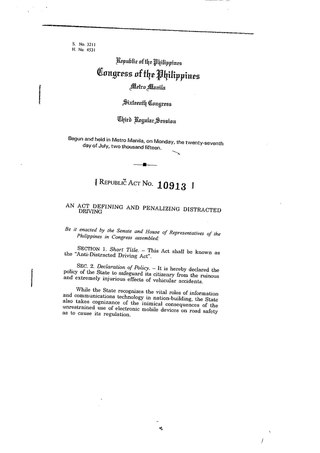
The Philippine National Police is the armed national police force in the Philippines. Its national headquarters is located at Camp Crame in Bagong Lipunan ng Crame, Quezon City. Currently, it has approximately 228,000 personnel to police a population in excess of 100 million.

The Commission on Higher Education is a government agency under the Office of the President of the Philippines. It is responsible for regulating and governing all higher education institutions and post-secondary educational programs in the country.

The ombudsman of the Philippines is an ombudsman responsible for investigating and prosecuting Philippine government officials accused of crimes, especially graft and corruption.

The National Intelligence Coordinating Agency (NICA) is the primary intelligence gathering and analysis arm of the Government of the Philippines in charge of carrying out overt, covert, and clandestine intelligence activities. The NICA directs, coordinates, and integrates all intelligence activities, both foreign and domestic, concerning national security, serving as the leading intelligence collector of the national government, focusing on the country's strategic intelligence requirements. It is mandated to prepare intelligence estimate on local and foreign situation for the formulation of national security policies by the President and the National Security Council.

The Land Transportation Franchising and Regulatory Board is an agency of the Republic of the Philippines under the Department of Transportation (DOTr). The LTFRB was established on June 19, 1987, during the former president Corazon Aquino’s administration.
Ombudsmen in Australia are independent agencies who assist when a dispute arises between individuals and industry bodies or government agencies. Government ombudsman services are free to the public, like many other ombudsman and dispute resolution services, and are a means of resolving disputes outside of the court systems. Australia has an ombudsman assigned for each state; as well as an ombudsman for the Commonwealth of Australia. As laws differ between states just one process, or policy, cannot be used across the Commonwealth. All government bodies are within the jurisdiction of the ombudsman.

An ombudsman, ombud, ombuds, bud, ombudswoman, ombudsperson or public advocate is a government employee who investigates and tries to resolve complaints, usually through recommendations or mediation. They are usually appointed by the government or by parliament.
A children's ombudsman, children's commissioner, youth commissioner, child advocate, children's commission, youth ombudsman or equivalent body is a public authority in various countries charged with the protection and promotion of the rights of children and young people, either in society at large, or in specific categories such as children in contact with the care system. The agencies usually have a substantial degree of independence from the executive, the term is often used differently from the original meaning of ombudsman, it is often an umbrella term, often used as a translation convention or national human rights institutions, dealing with individual complaints, intervening with other public authorities, conducting research, and – where their mandate permits them to engage in advocacy – generally promoting children's rights in public policy, law and practice. The first children's commissioner was established in Norway in 1981. The creation of such institutions has been promoted by the United Nations Committee on the Rights of the Child, and, from 1990 onwards, by the Council of Europe.

The Office of the President of the Philippines, is an administrative, advisory, and consultative government agency that aids the president of the Philippines in performing their duty as head of state and chief of the executive branch of government.

Greco Antonious Beda Banta Belgica is a Filipino politician who most recently served as chairman of the Presidential Anti-Corruption Commission (PACC) under the Duterte administration from March to October 2021.

The Philippine Space Agency (PhilSA) is the national space agency of the Philippines.

Emmanuel Joel Jose Villanueva, nicknamed "Tesdaman", is a Filipino politician serving as the Senate Majority Leader since 2022 and has been a Senator since 2016. He previously served as the Director General of the Technical Education and Skills Development Authority (TESDA) from 2010 to 2015 in the administration of President Benigno Aquino III. He started his political career in the House of Representatives, representing CIBAC party-list from 2002 to 2010; he was the youngest member of the House when he assumed office, aged 26. He is a son of evangelist and politician Bro. Eddie Villanueva, founder of Jesus Is Lord Church Worldwide.
The following are the events in related to Philippine law in 2016. This includes developments in criminal investigations of national notability.

The Anti-Distracted Driving Act (ADDA), officially designated as Republic Act No. 10913, is a Philippine law that prohibits distracted driving by restricting and penalizing the use of mobile phones and other electronics devices while driving on any public thoroughfare, highway, or street in the Philippines. The republic act defines "distracted driving" as "using mobile communications device to write, send, or read a text-based communication or to make or receive calls" or "using an electronic entertainment or computing device to play games, watch movies, surf the internet, compose messages, read e-books, perform calculations, and other similar acts" while behind the wheel of a moving vehicle or while temporarily stopped at a red light. The law covers all private and public vehicles, including agricultural machines, construction equipment, public utility buses and jeepneys, taxicabs, motorcycles, tricycles, pedicabs, kuligligs and carriages.
8888, also known as the Citizens' Complaint Hotline and the President's Hotline, is a 24/7 national public service hotline operated by the government of the Philippines. It was introduced on August 1, 2016, by President Rodrigo Duterte to allow the public to report poor government front-line service delivery and corrupt practices in all government agencies, government-owned and controlled corporations, government financial institutions, and other instrumentalities of the government.

DITO Telecommunity Corporation, formerly known as Mindanao Islamic Telephone Company, Inc. or Mislatel is a telecommunications company in the Philippines which is also engaged in the business of multimedia and information technology. It is a consortium of DITO CME Holdings Corporation, a subsidiary of the Udenna Corporation which is owned by Davao businessman Dennis Uy, and China Telecommunications Corporation, a state-owned enterprise of the government of mainland China and a parent company of China Telecom.

Now Telecom Company, Inc. is a telecommunications firm based in the Philippines. The company provides broadband and fiber-optic communication services to upper-class residential and commercial areas in Metro Manila under the Now Fiber Air brand. The firm, along with Now Corporation and News and Entertainment Network Corporation (NEWSNET), formed the unified Now Network service.

The National Task Force to End Local Communist Armed Conflict (NTF-ELCAC) is a task force organized by the government of the Philippines in 2018 as part of its "Whole-of-Nation approach" to respond to and raise awareness about ongoing communist armed conflicts in the Philippines, after the administration of President Rodrigo Duterte formally terminated peace talks between the Philippine government and the New People's Army in November 2017.

The Presidential Anti-Corruption Commission (PACC) was an anti-corruption government agency of the Philippines which existed during the administration of President Rodrigo Duterte.

The 2023-2024 transport strikes in the Philippines are a series of strikes by operators of traditional public jeepneys and minivans held in various cities across the Philippines to protest against the Public Utility Vehicle Modernization Program. The strikes were held since March 2023.


















